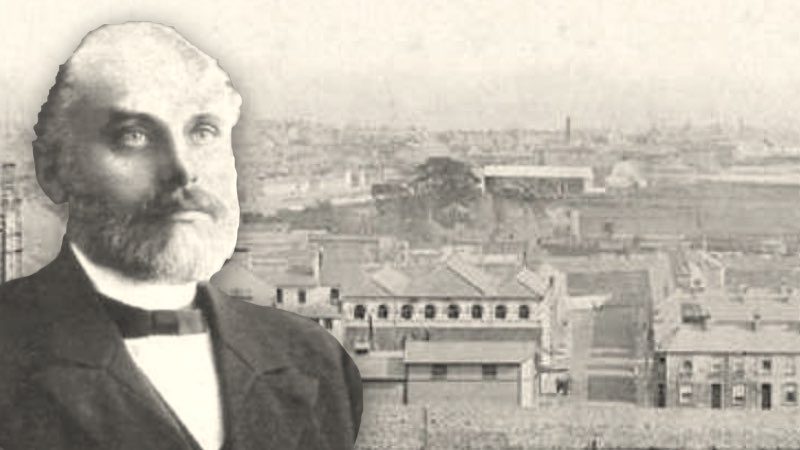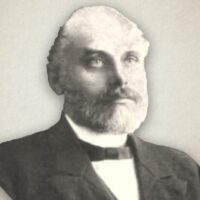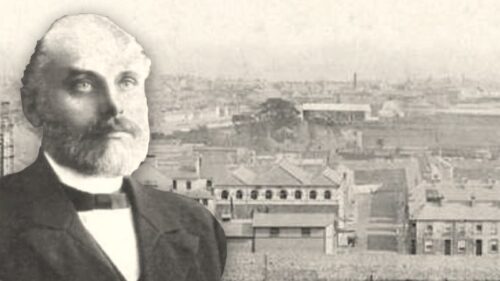
Self-Sufficiency And Its Results
“And the men took of their victuals, and asked not counsel at the mouth of the Lord.”—Joshua 9:14
What wisdom have we sometimes seen in the saying of good John Newton: “Satan is a footpad; a footpad will not attack man in going to the bank, but in returning with his pockets full of money.” This pithy observation seems applicable to the circumstance brought before us, of Israel’s unholy alliance with the accursed nations, which proved to be a source of trouble to them. God had proved Himself faithful to His promise to Joshua, “There shall not any man be able to stand before Thee” (Josh. 1:5).
Jericho and Ai, notwithstanding their determined resistance, had fallen before the victorious host of God’s elect. A solemn service of thanksgiving had been held; the law of God, with its blessings and cursings, had been carefully pondered; “There was not a word of all that Moses commanded which Joshua read not before all the congregation of Israel” (Josh. 8:35). Thus, things presented a most promising appearance. Their success was acknowledged to be the result of God’s presence with them; and they apparently desired to press forward, still trusting in Him who had taught their “hands to war and their fingers to fight.” They were quite prepared to meet any foe in open battle, but the event proved that they were not prepared to contend with the deceit of stratagem. “Surely in vain the net is spread in the sight of any bird.” How fatally unconscious were they, amid all their zeal, of a weakness which would occasion a serious failure.
In enlarging a little upon this interesting narrative, let us first notice, That we need to beware lest past experience of success should produce in any degree unconsciousness of our present need of Divine wisdom and support. Israel’s experience at Jericho had strikingly proclaimed to them that God was on their side, and that however strong and courageous their enemies (who were also His) might be, they would have to fall before His almighty power. This properly yielded much comfort and rejoicing, and tended to nourish faith in the Divine promises. How precious to the soldiers of Jesus is it to prove in any measure the veracity of His word—to look back upon the hill Mizar, and contemplating deliverance already obtained, set up the Ebenezer and say, “Hitherto the Lord hath helped us.” Yet how needful it is for the peace and well-being of the soul, even amid the joy arising from consciousness of Divine approbation, to encourage a spirit of holy fear or jealousy, lest self consciousness and self-dependence gradually take the place of humble and full reliance on God. ”Pass the time of your sojourning here in fear” (l Pet. 1:17); “A wise man feareth, and departeth from evil” (Prov. 14:16). How few can bear the trial of prosperity. A striking and humbling instance we have of this in the case of Solomon, the wisest of men. Long continued peace and prosperity becomes, through the crookedness of fallen nature, an occasion of sin, and forgetfulness of the Giver.
Mr. Hart says of pride, that it—
“The heart uplifts with God’s own gifts,
And makes e’en grace a snare.”
As Flavel observes, “That is a bad tenant that will maintain a suit at law against his landlord with his own rent; and a bad heart that will fight against God with His own mercies.” But such has been the evil disposition of our nature since the fatal day in which our parent Eve was led into the sins of ingratitude and rebellion. Let us, therefore, be vigilant in watching against the treachery of our hearts, lest any present success may yield occasion for the enemy of souls, as an angel of light, to draw us into the snare of spiritual pride. “Let him that thinketh he standeth take heed lest he fall” (1 Cor. 10:12); “Great men are not always wise, neither do the aged understand judgment” (Job 32:9); ”Be not high minded, but fear” (Rom. 11:20); Solomon’s years of wisdom did not prevent him from playing the fool in his latter days.
“Great is the need, when life looks fair,
That we closely cling to our Father’s care.”
Secondly. We notice the evil consequences of a hasty spirit. Without sufficient deliberation and caution, the lies of these Gibeonites are received and acted upon. How many of our troubles are occasioned by our rashness.
David complains of this infirmity: “For I said in my haste, I am cut off from before Thine eyes (Psalm 31:22); and again, “I said in my haste, All men are liars” (Psalm 116:11). Hasty language is here the voice of unbelief; but one of the characteristics of faith is “patient waiting.” “He that believeth shall not make haste” (Isa. 28:16). Warmth and zeal are highly commendable in a good cause, but, alas! how often imprudence and haste take the place of these virtues in the best of saints. We seem at times to want God to hurry with His work; and the rebuke of Jesus is still very salutary, “My time is not yet come, but your time is always ready (John 7:6). Premature action is necessarily weak and unstable; but what God doeth “He doeth for ever.” “For ye shall not go out with haste, nor go by flight: the Lord will go before you; and the God of Israel will be your rereward” (Isa. 52:12). Moses, the meekest of men, brought much trouble upon himself by yielding to the rashness of his spirit, in a moment of provocation; Solomon considers this infirmity well nigh an incurable one: ”Seest thou a man hasty in his words? there is more hope of a fool than of him” (Prov. 29:20). We need to frequently ponder the words, “The prudent man foreseeth the evil, and hideth himself: but the simple pass on, and are punished” (Prov. 22:3). How much to be desired is the subdued spirit manifest in the Psalmist, ”I waited patiently for the Lord” (Psa. 40:1).
Thirdly. We see plainly, in the action of Israel towards the Gibeonites, the evil consequences of slighting God’s direction! When He made choice of Joshua to succeed Moses, His directions to him were: “He shall stand before Eleazar the priest, who shall ask counsel for him after the judgment of Urim before the Lord: at his word shall they go out and at his word they shall come in { Num. 27:21). We do not read that the priest was consulted at this time by Joshua; he seems to have depended on his own judgment. This was really an insult to the Lord. Much grace is needed to preserve a man humble and dependent, when raised to an eminent position. A haughty spirit precedes a fall. To alight God’s plain command is to slight Himself, and will surely end in disaster and dismay. Thus He permits Joshua and the people of Israel to be deceived. They depended upon their own wisdom, and proved it to be folly. ” He that trusteth in his own heart is a fool” (Prov. 28:26); “Trust in the Lord with all thine heart, and lean not to thine own understanding” (Prov. 3:5).
In conclusion, let us learn from this circumstance that outward appearance and fair speech are not always to be relied upon. Hypocrisy is frequently dressed in the garb of a seeming humility, which is one of its most subtle and dangerous forms. Often things are not what they seem to be. We cannot afford to slight the apostolic injunctions: “Prove all things” (1 Thess. 5:21); “Try the spirits” (1 John 4:1); “Lay hands suddenly on no man” (1Tim. 5:22); the “discerning of spirits” is a gift to be coveted by the disciples of Jesus.
And if we would be discerners of spirits, we must carefully and impartially study our own deceitful hearts. He who knows himself best, will be most competent to discriminate between the false and the real. The present time is notable for show and outward glitter. The true Church of Christ is infested by those who “seem to have” (Luke 8:18). Archbishop Leighton has wisely remarked, “Hypocrites, as vermin in summer, breed most in the time of the Church’s prosperity.” The Church has long enjoyed outward prosperity, and much empty profession is rife on every hand.
We have sometimes heard the remark, “It is better to receive many hypocrites into Christian fellowship than to reject one of Christ’s lambs.” Although there is a spirit of love about this expression highly commendable (and God grant we may never put a single stone in the way of a seeking lamb), yet we cannot fully agree with it. One diseased sheep may infect a whole fold. One treacherous citizen may cause destruction by opening the gates to the enemy. One secret sinner in the camp of Israel produced defeat at Ai. We would not knowingly entrust the secrets of our family life to any but a most trusty friend. Therefore we should feel anxious that we receive none into the visible fold of Christ but those who bear the Good Shepherd’s mark. The wisest may, and do frequently, err in this, but let not this make us less careful; rather let it produce redoubled watchfulness, and earnest prayer for that wisdom that cometh from above, “Which is first pure, then peaceable, gentle, and easy to be intreated, full of mercy and good fruits, without partiality, and without hypocrisy” (James 3:17); Jesus the Holy One knew what was in men’s hearts; He could not be deceived. And the more His followers dwell in fellowship with Him, and partake of His Spirit, the less likely will they be to be carried away by deception. May He thus bless us, and make us “wise as serpents and harmless as doves.”
Walter Brooke (1863-1934) was a Strict and Particular Baptist preacher, appointed as Pastor of Windsor Road Strict Baptist Chapel, Cardiff.
Walter Brooke Sermons




